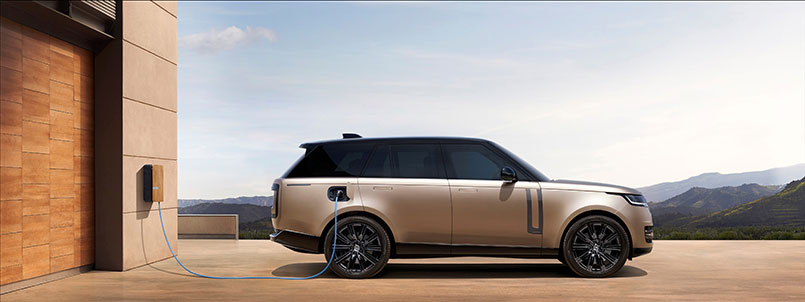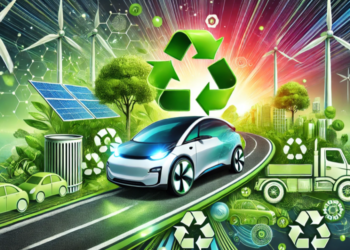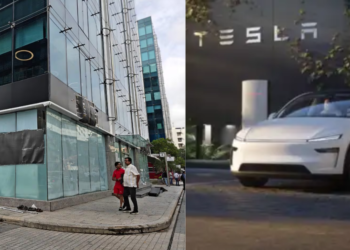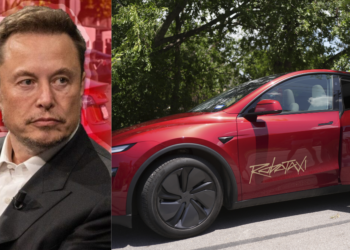As negotiations for the India-UK Free Trade Agreement (FTA) gain momentum, Jaguar Land Rover (JLR), a marque brand under Tata Motors, is exploring opportunities to manufacture electric vehicles (EVs) in India.
This strategic move, currently in advanced discussions, can potentially establish the largest manufacturing facility for JLR outside of the UK, with Gujarat’s Sanand emerging as a likely investment destination. The development marks a significant step towards bolstering India’s position in the global EV landscape and underscores the evolving dynamics of the automotive industry.

Jaguar Land Rover’s (JLR) Investment Prospects in Gujarat:
The possibility of JLR investing in an EV manufacturing facility in Sanand, Gujarat, signifies a notable shift in the automotive sector’s landscape. Leveraging Tata Motors‘ localized Electrified Modular Architecture (EMA) for its Avinya range of cars, JLR aims to capitalize on India’s burgeoning EV market.
Using the EMA platform, originally intended for the Avinya range’s Gen 3 architecture, underscores JLR’s commitment to innovation and sustainability.
EXCLUSIVE: JLR is exploring the potential of manufacturing electric vehicles in India. The discussion, which is at an advanced stage of conclusion, if given the green light, will create the biggest manufacturing facility for JLR outside of the UK https://t.co/KlYNWqR8YO pic.twitter.com/RFhWcSs43w
— Autocar Professional (@autocarpro) February 19, 2024
Jaguar Land Rover’s (JLR)Investment Impact on India’s Automotive Sector:
The proposed investment is expected to inject momentum into India’s EV sector if the discussions materialize into a concrete plan. With a projected volume of approximately 3,00,000 units, the venture envisages the development of multiple models from both Tata Motors and JLR over the next decade.

This ambitious undertaking is poised to enhance India’s manufacturing capabilities while bolstering its export potential in the global automotive market.
Also Read – New Audi RS5 Avant Goes Electrified in 2025: Here’s All We Know So Far
Technological Advancements Driving the Initiative:
The localization of the EMA architecture by Tata Motors underscores the importance of technological innovation in driving the transition toward electric mobility. Adopting advanced battery technology and cells and software over-the-air (SOTA) capabilities reflects a concerted effort to embrace cutting-edge solutions in EV manufacturing.

Moreover, the platform’s integration of features like Level 2+ autonomy and ultrafast charging technologies underscores its potential to redefine the EV landscape.
Implications for the India-UK FTA Negotiations on Jaguar Land Rover (JLR)’s Investment Plans:
The timing of JLR’s venture into India’s EV market amidst the ongoing India-UK FTA negotiations underscores the strategic importance of the automotive sector in bilateral trade relations. As both countries seek to iron out differences and pave the way for a mutually beneficial trade agreement, JLR’s investment signals confidence in India’s economic potential and its role as a critical player in the global automotive industry.
JLR’s exploration of EV manufacturing in India holds immense promise for the country’s automotive sector. The potential establishment of a state-of-the-art manufacturing facility and adoption of cutting-edge technologies underscore JLR’s commitment to driving sustainable mobility solutions. As discussions progress and plans materialize, this transformative initiative has the potential to redefine India’s position in the global EV landscape and propel the nation towards a greener, more sustainable future.














